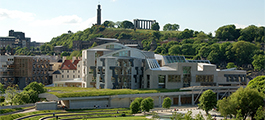Our aim is to advance our understanding of how key intellectual concepts such as gender, race, nationality, language, class and religion construct and shape our identities.
By focusing on these areas, research in the faculty will continue to examine how we intellectually map our place in the universe.
Many of the big global challenges that we face today have been shaped by historical and cultural forces. It is by understanding the complexity of the evolution of such challenges that we can identify solutions and implement improvements within society.
How we understand our culture, our identity and our history is crucial to our engagement with the modern world.
This ability to see issues from a different perspective is a key component of our research.
Research centres & groupings
We use historical and literary contexts of the past to influence actions in the present through our research centres and groupings. These include:
- Scottish Oral History Centre
- Centre for the Social History of Health and Health care
- Centre for the Study of Human Rights Law
- Centre for Law, Crime & Justice
- Institute for Future Cities
In addition, research in the School of Social Work & Social Policy explores the role and status of culture and identity across different European countries, and the ways in which different citizenship regimes are able to reflect multicultural minority ‘difference’ related to ethnicity, religion and culture.
Researchers at the Institute for Future Cities work with public and private organisations globally to help them engage effectively with communities and other representative (and often marginalised) voices in decision-making and placemaking, ensuring that individuals and wider communities have active and meaningful involvement in ways that sensitively incorporates their needs, opportunities, cultural identities and legacies.
In The Strathclyde Institute of Education, research considers culture philosophically and reflects this on the implications for education.




